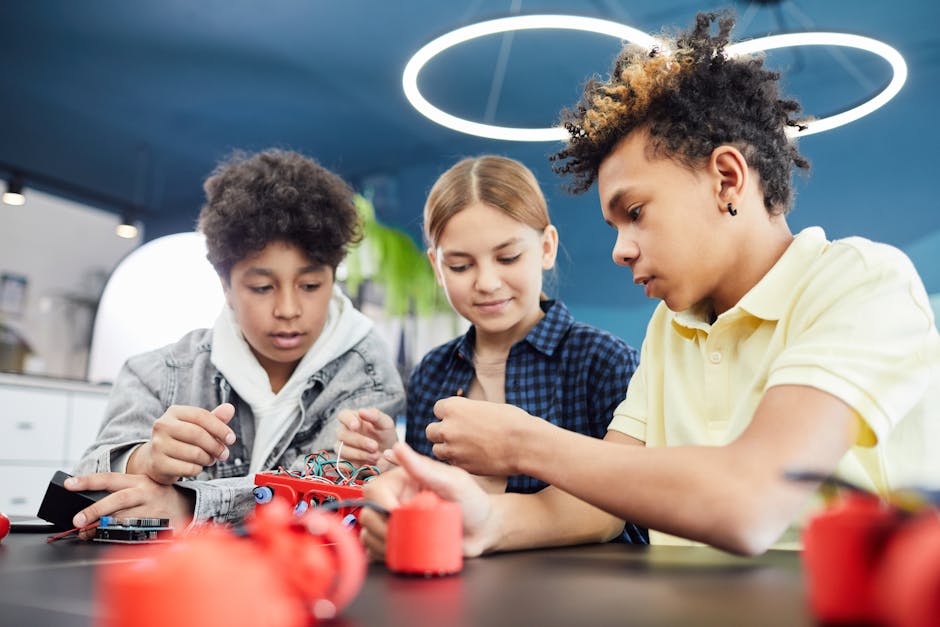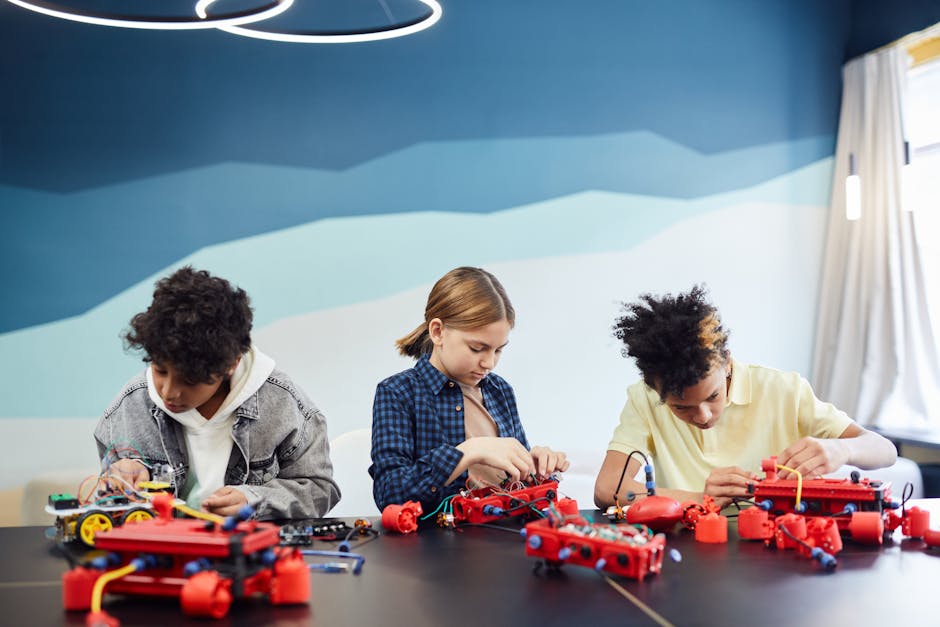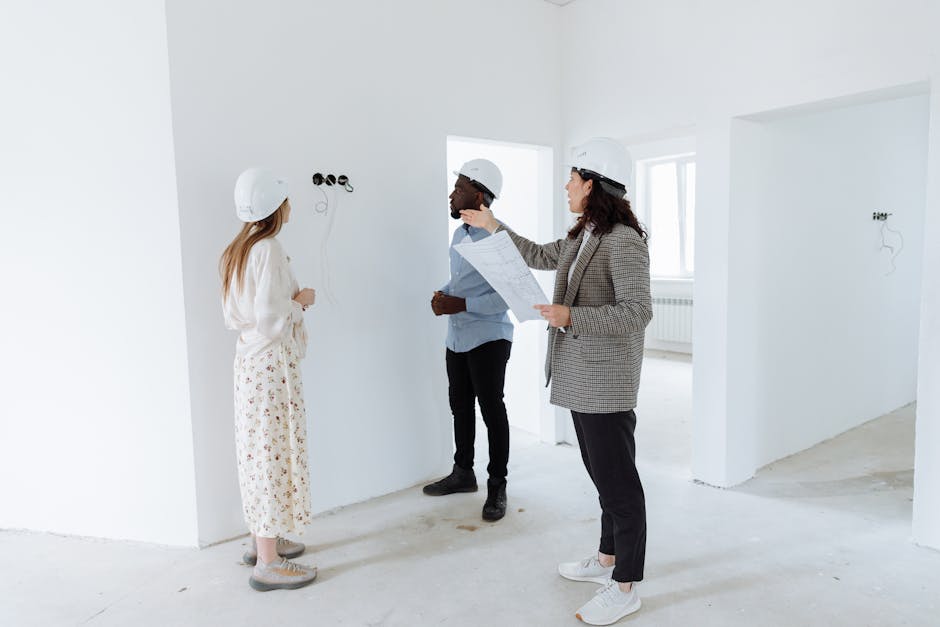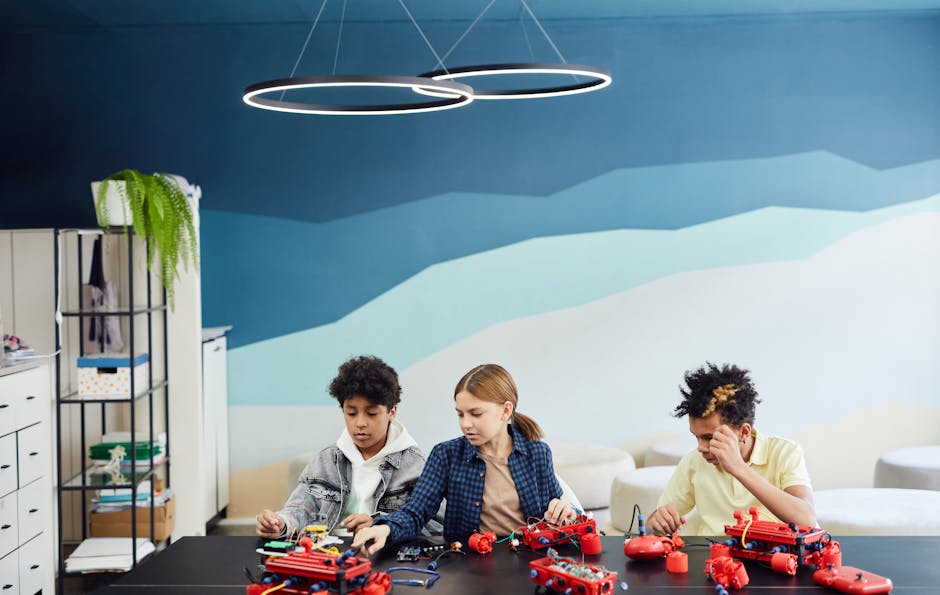How To Enhance Your Team Collaboration Skills?
If you’ve ever been part of a team, you know that collaboration can either feel like a well-choreographed dance or a chaotic tug-of-war. Team collaboration skills are the secret sauce that turns a group of individuals into a powerhouse of creativity, productivity, and innovation.
But here’s the kicker: collaboration doesn’t just happen. It’s a skill that needs to be nurtured, practiced, and refined. So, if you’re ready to take your teamwork to the next level, keep reading. This guide will walk you through everything you need to know to become a collaboration superstar.
Key Takeaways
- Team collaboration thrives on clear communication, trust, and shared goals.
- Building self-awareness and emotional intelligence are game-changers.
- Leadership and tools play a pivotal role in fostering collaboration.
- Overcoming challenges like communication gaps and conflicts is essential.
Understanding Team Collaboration
Definition of Team Collaboration
At its core, team collaboration is about working together to achieve a common goal. It’s not just about dividing tasks; it’s about combining strengths, sharing ideas, and solving problems collectively. Think of it as a symphony where every instrument plays a unique role, yet all contribute to the same melody.
Importance of Collaboration in the Workplace
Why does collaboration matter so much? Because no one can do it all alone. In today’s fast-paced world, teamwork is the backbone of innovation and efficiency. When teams collaborate effectively, they can tackle complex challenges, make better decisions, and deliver results faster.
Plus, let’s face it—working together is just more fun. It fosters a sense of belonging and makes the workplace feel less like a grind and more like a community.
Core Elements of Effective Collaboration
Clear Purpose and Roles
Every team needs a roadmap. Without a clear purpose and defined roles, collaboration can quickly turn into chaos. Make sure everyone knows the “why” behind the project and their specific responsibilities.
Open Communication
Communication is the glue that holds teams together. Encourage open dialogue where everyone feels heard. If you’re looking to sharpen your communication skills, check out this guide for practical tips.
Mutual Accountability
Accountability isn’t about pointing fingers; it’s about owning your part of the puzzle. When team members hold themselves and each other accountable, trust and reliability flourish.

Key Skills for Enhancing Team Collaboration
Building Self-Awareness
Self-awareness is like a mirror for your behavior. Understanding your strengths, weaknesses, and how you impact others can make you a better team player.
Improving Emotional Intelligence
Emotional intelligence (EQ) is your ability to understand and manage emotions—yours and others’. High EQ helps you navigate conflicts, build relationships, and create a positive team environment.
Developing Active Listening Skills
Listening isn’t just about hearing words; it’s about understanding the message behind them. Practice active listening by focusing fully on the speaker, asking clarifying questions, and summarizing what you’ve heard.
Encouraging Empathy and Understanding
Empathy is the bridge that connects people. By putting yourself in someone else’s shoes, you can better understand their perspective and work together more effectively.

Strategies to Improve Team Collaboration
Building Diverse and Inclusive Teams
Diversity isn’t just a buzzword; it’s a strength. Teams with diverse backgrounds, experiences, and perspectives are more creative and innovative.
Clearly Defining Roles and Responsibilities
Ambiguity is the enemy of collaboration. Clearly define who does what to avoid confusion and overlap.
Establishing Trust and Psychological Safety
Trust is the foundation of any successful team. Create an environment where team members feel safe to share ideas, take risks, and admit mistakes without fear of judgment.
Encouraging Frequent and Clear Communication
Regular check-ins, updates, and feedback loops keep everyone on the same page. For tips on improving communication in personal relationships, explore this article.
Providing Teams with Autonomy in Decision-Making
Micromanagement kills creativity. Give your team the freedom to make decisions and take ownership of their work.

Leadership’s Role in Team Collaboration
Balancing Leadership and Teamwork
A great leader knows when to step up and when to step back. Strike a balance between guiding your team and empowering them to lead themselves.
Setting Clear Goals and Expectations
Without clear goals, a team is like a ship without a compass. Set SMART (Specific, Measurable, Achievable, Relevant, Time-bound) goals to keep everyone aligned.
Recognizing and Rewarding Team Efforts
A little appreciation goes a long way. Celebrate successes, big and small, to boost morale and motivation.
Managing Team Dynamics Effectively
Every team has its quirks. Learn to navigate different personalities and dynamics to keep the team cohesive and focused.

Tools and Techniques to Foster Collaboration
Utilizing Collaboration Tools and Technology
Centralizing Information and Resources
Use tools like Slack, Trello, or Asana to keep everything organized and accessible. Centralized resources save time and reduce frustration.
Streamlining Projects and Daily Tasks
Project management tools help teams stay on track and meet deadlines. They’re like a GPS for your projects.
Building a Culture of Collaboration
Fostering Connection Beyond Communication
Team-building activities, both in-person and virtual, can strengthen bonds and improve collaboration.
Encouraging Innovation and Creativity
Create a safe space for brainstorming and experimenting. Remember, some of the best ideas come from thinking outside the box.

Overcoming Challenges in Team Collaboration
Identifying and Resolving Communication Problems
Miscommunication is a common hurdle. Address it head-on by clarifying messages and encouraging feedback.
Mediating Disputes and Conflicts
Conflict isn’t always bad—it can lead to growth if handled constructively. Act as a mediator to resolve issues and find common ground.
Avoiding Micromanagement
Trust your team to do their job. Micromanagement stifles creativity and breeds resentment.
Adapting to Flexible Work Environments
Remote and hybrid work setups require new approaches to collaboration. Embrace technology and flexibility to keep teams connected.

Benefits of Effective Team Collaboration
Increased Productivity and Efficiency
When everyone works together seamlessly, tasks get done faster and better.
Enhanced Creativity and Innovation
Collaboration sparks creativity by bringing diverse ideas to the table.
Improved Employee Satisfaction and Retention
Happy teams are productive teams. Collaboration fosters a positive work environment that keeps employees engaged.
Better Problem-Solving and Decision-Making
Two heads are better than one—or in this case, a whole team of them. Collaborative problem-solving leads to smarter decisions.
Building a Long-Term Collaborative Culture
Providing Learning and Development Opportunities
Invest in training programs to help your team build collaboration skills.
Encouraging Continuous Feedback and Improvement
Feedback is the breakfast of champions. Regularly review what’s working and what’s not to keep improving.
Aligning Collaboration with Organizational Goals
Make sure your team’s efforts align with the bigger picture. This creates a sense of purpose and direction.
Sustaining Collaboration Through Leadership Commitment
Leaders set the tone for collaboration. Stay committed to fostering a culture of teamwork and trust.

Ready to level up your collaboration game? Start small, stay consistent, and watch your team transform into a well-oiled machine. For more tips on teamwork and problem-solving, check out this resource.
Collaboration isn’t just a skill—it’s a mindset. So, roll up your sleeves, dive in, and make teamwork your superpower!
(source: https://asana.com/resources/collaboration-in-the-workplace)
FAQ: Unlocking the Secrets to Enhancing Team Collaboration Skills
Why is team collaboration important in the workplace?
Team collaboration fosters creativity, improves problem-solving, and enhances productivity by combining diverse skills and perspectives. It also builds stronger relationships and trust among team members, creating a more cohesive and efficient work environment.
What are the key skills needed for effective team collaboration?
Key skills include active listening, clear communication, adaptability, conflict resolution, and emotional intelligence. These skills help team members understand each other, share ideas effectively, and work together towards common goals.
How can I improve communication within my team?
Encourage open and transparent communication by creating a safe space for sharing ideas and feedback. Use tools like regular meetings, collaborative platforms, and clear guidelines to ensure everyone stays informed and aligned.
What role does leadership play in team collaboration?
Leadership sets the tone for collaboration by fostering a culture of trust, inclusivity, and accountability. Effective leaders guide the team, resolve conflicts, and ensure that everyone has the resources and support they need to succeed together.
How can technology enhance team collaboration?
Technology provides tools like project management software, video conferencing, and collaborative platforms that streamline communication and task management. These tools help teams stay connected, even when working remotely or across different time zones.
What are some common barriers to team collaboration?
Barriers include poor communication, lack of trust, unclear goals, and resistance to change. Addressing these issues requires proactive leadership, open dialogue, and a commitment to building a collaborative culture.
How can team-building activities improve collaboration skills?
Team-building activities foster trust, improve communication, and strengthen relationships among team members. These activities create opportunities for individuals to understand each other’s strengths and work more effectively together.
What is the role of feedback in enhancing collaboration?
Constructive feedback helps team members identify areas for improvement and reinforces positive behaviors. Regular feedback sessions encourage growth, accountability, and a shared commitment to achieving team goals.
How can cultural differences impact team collaboration?
Cultural differences can influence communication styles, decision-making, and work preferences. Embracing diversity and promoting cultural awareness within the team can turn these differences into strengths, fostering innovation and mutual respect.
What are some practical tips for fostering collaboration in a remote team?
Use collaborative tools, set clear expectations, and schedule regular check-ins to maintain communication. Encourage virtual team-building activities and create opportunities for informal interactions to build rapport and trust among remote team members.



